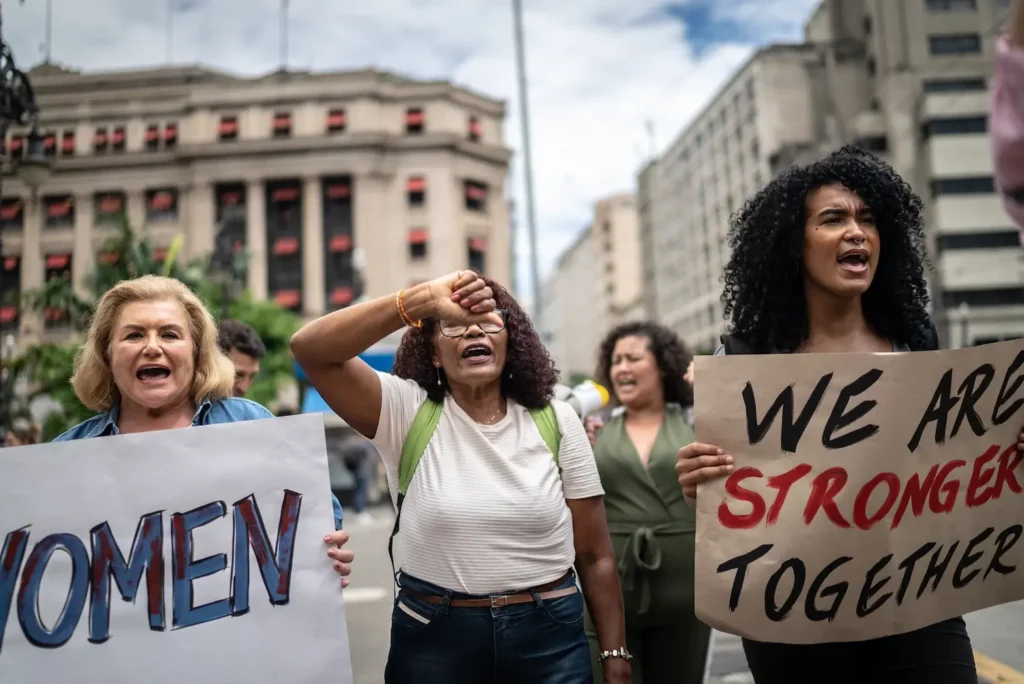“I can’t do it!” our child whines while making a peanut butter and jelly sandwich.
Seething with rage, we begin to yell without thinking.
Why do we react that way? Our child is simply having trouble making a sandwich, yet their complaint unnerves and angers us. Their words or tone of voice may remind us of something in our past, perhaps from childhood; this stimulus is known as a trigger.
What is a trigger?
Relationship coach Kyle Benson defines a trigger as “an issue that is sensitive to our heart—typically something from our childhood or a previous relationship.” Triggers are emotional “buttons” that we all possess, and when those buttons are pushed, we are reminded of a memory or situation from the past. This experience “triggers” certain feelings within us and we react accordingly.
This type of reaction is rooted deep in the subconscious brain. As Mona DeKoven Fishbane asserts in Loving with the Brain in Mind: Neurobiology and Couple Therapy, “the amygdala is constantly scanning for danger and sets off an alarm when a threat is detected; this alarm sends messages throughout the body and brain that trigger fight-or-flight behavior.”
When we are triggered, all of our senses are heightened and we are reminded, consciously or subconsciously, of a previous life event. Perhaps, in that past event, we felt threatened or endangered. Our brains become wired to react to these triggers, usually surpassing logical, rational thought and going straight into a conditioned “fight-or-flight” response.
For example, let’s say our parents had extremely high expectations of us as children and reprimanded, punished, or even spanked us when we were not able to meet them. Our child’s difficulty with making a sandwich may remind us of our own failure to meet such high expectations, so we might respond to the situation as our own parents once did.
How to notice and understand your triggers
There are many ways to navigate situations that trigger us. One way is to notice when we react to something in a way that feels uncomfortable or unnecessarily loaded with extreme emotion. For example, we might realize that screaming at our child for whining about making a sandwich was an overreaction because we felt awful about it afterward. When that happens, owning our reactions, apologizing, and taking the time to deconstruct them can help us understand our triggers.
In this case, we might remember struggling with tying our shoes one day, which made us late for school. Our mother or father, now running late themselves, screamed at us for being so incompetent, smacked us on the leg, and grabbed our shoes to finish tying them, leaving us crying on the floor and feeling worthless. In this example, we were taught that we could not show weakness or inability and had to be strong or we would be punished, shamed, or physically harmed.
In the present, our child’s difficulty brings up that traumatic incident from our childhood, even if we are not initially aware of it. But becoming aware of that trigger is the first step in moving beyond it. Once you become aware of the trigger, you can acknowledge it, understand the deeper reasoning behind it, and respond calmly and rationally the next time you feel triggered.
As we practice noticing and understanding our overreactions, we become more attuned to the triggers that caused these reactions in us. And as we become more attuned, we can begin to work on becoming more aware as to why we reacted the way we did.
Managing triggers by practicing mindfulness
Another powerful way to understand and manage our triggers is to practice being mindful. When we allow ourselves to reflect and meditate, we can begin to observe our thoughts and feelings objectively, which enables us to sense when we are being triggered and understand why. If we maintain a sense of mindfulness, which takes practice, we can detach ourselves from such triggers when they arise and instead turn toward responding to our triggers by remaining calm, thoughtful, and present.
Once we began to understand the triggers that arose from our own childhood and how our child, when frustrated with making a sandwich, pushed our “buttons,” we can respond by apologizing for overreacting, seeking to understand why they are upset, and offering to help them. This method of managing your triggers will help you respond calmly and peacefully, giving you the ability to take on daily challenges with poise while not allowing the past to dictate your responses.
If want to build a deeply meaningful relationship full of trust and intimacy, then subscribe below to receive our blog posts directly to your inbox:








